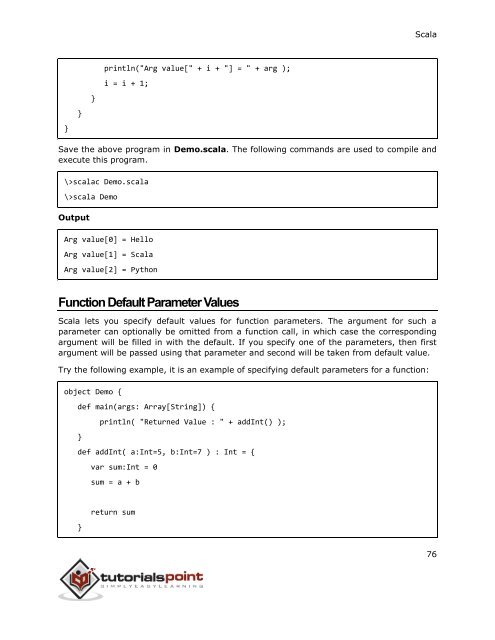Create successful ePaper yourself
Turn your PDF publications into a flip-book with our unique Google optimized e-Paper software.
Scala<br />
println("Arg value[" + i + "] = " + arg );<br />
i = i + 1;<br />
}<br />
}<br />
}<br />
Save the above program in Demo.<strong>scala</strong>. The following commands are used to compile and<br />
execute this program.<br />
\><strong>scala</strong>c Demo.<strong>scala</strong><br />
\><strong>scala</strong> Demo<br />
Output<br />
Arg value[0] = Hello<br />
Arg value[1] = Scala<br />
Arg value[2] = Python<br />
Function Default Parameter Values<br />
Scala lets you specify default values for function parameters. The argument for such a<br />
parameter can optionally be omitted from a function call, in which case the corresponding<br />
argument will be filled in with the default. If you specify one of the parameters, then first<br />
argument will be passed using that parameter and second will be taken from default value.<br />
Try the following example, it is an example of specifying default parameters for a function:<br />
object Demo {<br />
def main(args: Array[String]) {<br />
}<br />
println( "Returned Value : " + addInt() );<br />
def addInt( a:Int=5, b:Int=7 ) : Int = {<br />
var sum:Int = 0<br />
sum = a + b<br />
}<br />
return sum<br />
76


